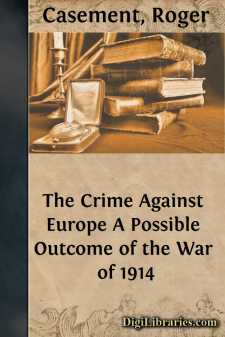Categories
- Antiques & Collectibles 13
- Architecture 36
- Art 48
- Bibles 22
- Biography & Autobiography 816
- Body, Mind & Spirit 145
- Business & Economics 28
- Children's Books 17
- Children's Fiction 14
- Computers 4
- Cooking 94
- Crafts & Hobbies 4
- Drama 346
- Education 58
- Family & Relationships 59
- Fiction 11834
- Foreign Language Study 3
- Games 19
- Gardening 17
- Health & Fitness 34
- History 1378
- House & Home 1
- Humor 147
- Juvenile Fiction 1873
- Juvenile Nonfiction 202
- Language Arts & Disciplines 89
- Law 16
- Literary Collections 686
- Literary Criticism 179
- Mathematics 13
- Medical 41
- Music 40
- Nature 179
- Non-Classifiable 1768
- Performing Arts 7
- Periodicals 1453
- Philosophy 66
- Photography 2
- Poetry 897
- Political Science 203
- Psychology 45
- Reference 154
- Religion 516
- Science 126
- Self-Help 85
- Social Science 82
- Sports & Recreation 34
- Study Aids 3
- Technology & Engineering 59
- Transportation 23
- Travel 463
- True Crime 29
Our website is made possible by displaying online advertisements to our visitors.
Please consider supporting us by disabling your ad blocker.
The Crime Against Europe A Possible Outcome of the War of 1914
by: Roger Casement
Description:
Excerpt
INTRODUCTION.
The reader must remember that these articles were written before the war began. They are in a sense prophetic and show a remarkable understanding of the conditions which brought about the present great war in Europe.
The writer has made European history a life study and his training in the English consular service placed him in a position to secure the facts upon which he bases his arguments.
Sir Roger Casement was born in Ireland in September, 1864. He was made consul to Lorenzo Marques in 1889, being transferred to a similar post in the Portuguese Possessions in West Africa, which included the consulate to the Gaboon and the Congo Free State. He held this post from 1898 to 1905, when he was given the consulate of Santos. The following year he was appointed consul to Hayti and San Domingo, but did not proceed, going instead to Para, where he served until 1909, when he became consul-general to Rio de Janeiro. He was created a knight in 1911.
He was one of the organizers of the Irish Volunteers at Dublin in November, 1913, being one of their provisional committee. At present he is a member of the governing body of that organization. He spent the summer of this year in the United States. Sir Roger is at present in Berlin, where, after a visit paid to the foreign office by him, the German Chancellor caused to be issued the statement that "should the German forces reach the shores of Ireland they would come not as conquerors but as friends."
Sir Roger is well known for his investigation into the Putomayo rubber district atrocities in 1912.
December, 1914.
Chapter I
Since the war, foreshadowed in these pages, has come and finds public opinion in America gravely shocked at a war it believes to be solely due to certain phases of European militarism, the writer is now persuaded to publish these articles, which at least have the merit of having been written well before the event, in the hope that they may furnish a more useful point of view. For if one thing is certain it is that European militarism is no more the cause of this war than of any previous war. Europe is not fighting to see who has the best army, or to test mere military efficiency, but because certain peoples wish certain things and are determined to get and keep them by an appeal to force. If the armies and fleets were small the war would have broken out just the same, the parties and their claims, intentions, and positions being what they are. To find the causes of the war we must seek the motives of the combatants, and if we would have a lasting peace the foundations upon which to build it must be laid bare by revealing those foundations on which the peace was broken. To find the causes of the war we should turn not to Blue Books or White Papers, giving carefully selected statements of those responsible for concealing from the public the true issues that move nations to attack each other, but should seek the unavowed aims of those nations themselves....


